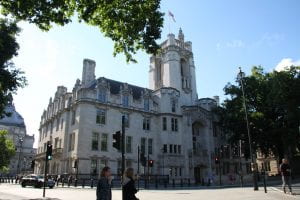by Professor Devyani Prabhat, University of Bristol Law School
The Special Immigration Appeals Commission (SIAC), a court that specialises in national security cases, has upheld the home secretary’s decision to cancel Shamima Begum’s citizenship. The 23-year-old was deprived of her citizenship in 2019, four years after leaving the UK aged 15 to join Islamic State in Syria. The court found “credible suspicion” that Begum had been trafficked for the purpose of sexual exploitation, as her lawyers had argued. It also found that there were “arguable breaches of duty” by state authorities in having allowed her to make the journey to Syria. (more…)




